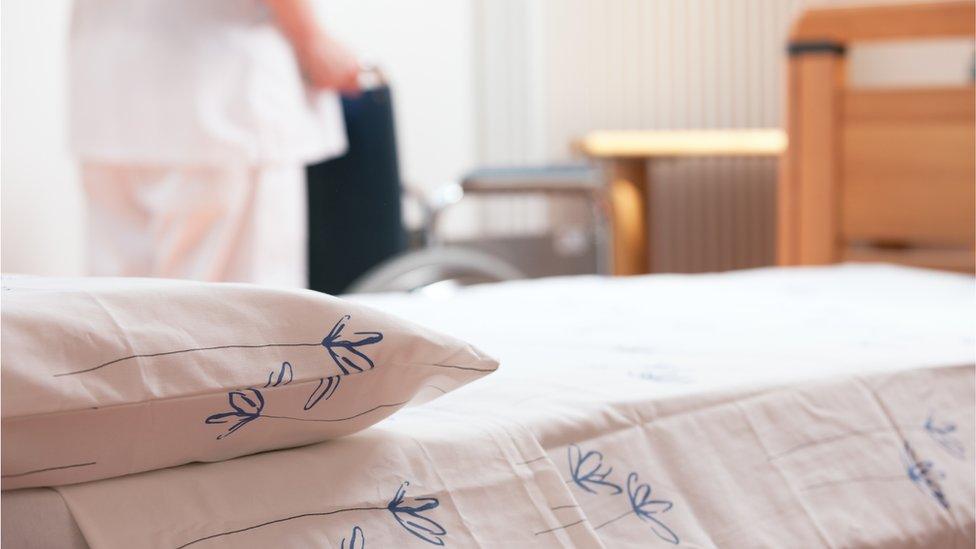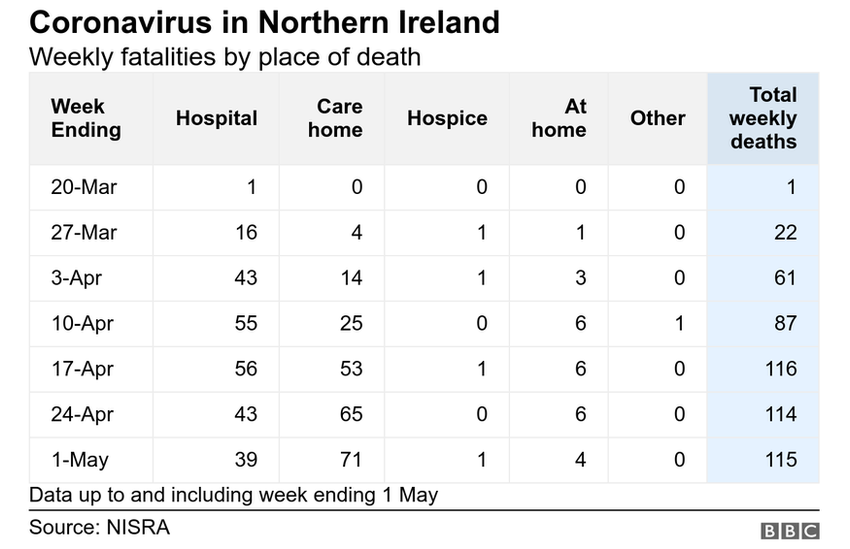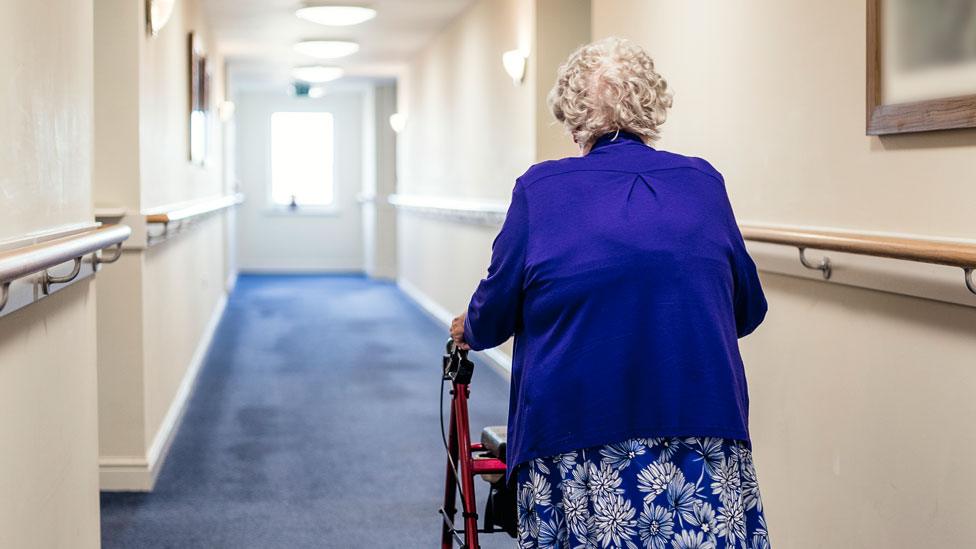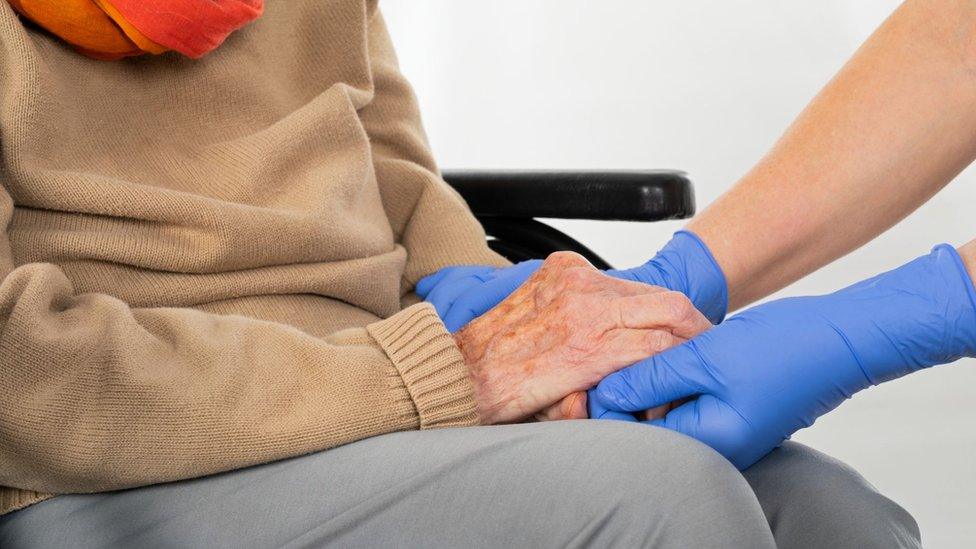Coronavirus: How can we stop the spread in care homes?
- Published

Of the 516 deaths Nisra recorded by 1 May, 232, or 45%, occurred in care homes
The latest weekly figures from the government statistics agency NISRA, external show 45%, (232), of all Covid-19 related deaths in Northern Ireland have happened in care homes.
So far, more have occurred in hospitals (253), but the gap is narrowing.
This week, we have heard care homes described as the "new front line" in the fight against Covid-19.
BBC News NI has reported deaths in double figures at two separate facilities.
Care homes were recognised from the start as being at high risk from this new, particularly transmissible virus.
That is why many homes moved quickly to suspend visiting, increase cleaning and put personal protective equipment in place, limiting the opportunity for Covid-19 to get a foothold.
Once any kind of virus gets into a care setting like a home, virologists will tell you it can be very, very difficult to contain.
Covid-19 is a reportable condition, like the flu and other illnesses.
Every day, every facility in Northern Ireland reports to the Public Health Agency whether any residents are showing respiratory symptoms.
The PHA is currently managing outbreaks in 110 homes.
An outbreak is only over when the last resident has been symptom-free for 14 days and a "terminal clean" has been carried out - every single item and surface in the home cleaned.
Only when the Public Health Agency, the Trust and the RQIA are satisfied, will the incident be concluded.
Since 30 March, 16 outbreaks have been concluded.
What is being done to support care homes?
There are 484 facilities in Northern Ireland, most of them private.
The Department of Health announced a £6.5m fund - that will go towards measures like extra cleaning and taking on additional staff.
It amounts to, at most, £20,000 per home, weighted according to size.
Testing in care homes has been increased and suitably-qualified Trust staff are being redeployed to care homes.
The sector historically has struggled with staff shortages.
Social distancing in a care setting is challenging - in many cases, staff are providing personal care which requires getting close to a resident.

And some elderly people simply don't understand, because of dementia or other conditions.
Putting a complete lockdown in place within a care home is close to impossible.
As the Director of Public Health at the PHA, Professor Hugo van Woerden described them to the Health Committee this week, by their nature, they're designed to be homely and communal, not to be fortresses where people can be confined to quarters for days at a time.
That's not what anyone would want for a parent, a grandparent or any loved one.
But Covid-19 is almost certainly here to stay.
'A privilege to care'
With no vaccine, all we can do to limit spread is practise social distancing and good hand hygiene, so as not to put others at risk.
It is hoped that as the virus is starved of the opportunity to transmit, the numbers will keep falling and that will save lives - in care homes and beyond.
Staff at one of the homes BBC News reported on this week spoke of losing friends, for whom it had been a privilege to care.
The homes are just that for residents, as your home is to you.
Relatives want to be sure their loved ones are as safe and protected as they can be, wherever they are.

A SIMPLE GUIDE: How do I protect myself?
AVOIDING CONTACT: The rules on self-isolation and exercise
WHAT WE DON'T KNOW How to understand the death toll
TESTING: Can I get tested for coronavirus?
LOOK-UP TOOL: Check cases in your area

- Published1 May 2020

- Published24 April 2020

- Published20 April 2020

- Published15 April 2020

- Published15 April 2020
